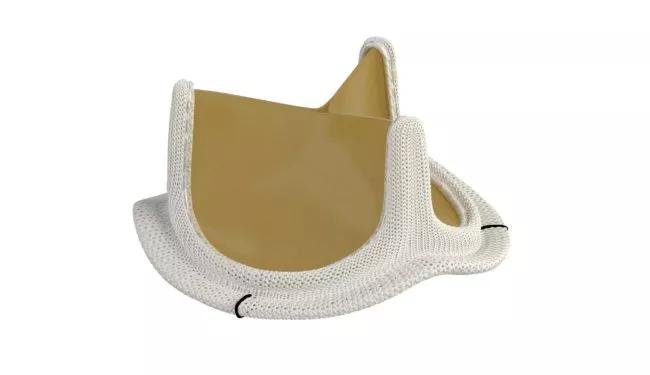Cleveland Clinic among first users of the Inspiris Resilia valve

Cleveland Clinic has performed some of the very first commercial U.S. implantations of the Inspiris Resilia aortic valve following the device’s FDA approval last year. The successful operations, performed in several patients in mid-January, follow Cleveland Clinic’s investigational use of the bovine pericardial bioprosthesis in numerous patients as part of the ongoing multicenter COMMENCE trial, whose two-year results formed the basis for FDA approval (see prior Consult QD post). Cleveland Clinic investigators plan to soon report three-year results of the COMMENCE trial, which remain positive.
Advertisement
Cleveland Clinic is a non-profit academic medical center. Advertising on our site helps support our mission. We do not endorse non-Cleveland Clinic products or services. Policy
“We are proud to be among the very first U.S. centers to offer this promising new bioprosthesis to appropriate surgical aortic valve replacement (AVR) patients outside of a research context,” says cardiothoracic surgeon Lars Svensson, MD, PhD, Chairman of Cleveland Clinic’s Miller Family Heart & Vascular Institute.
Dr. Svensson performed Cleveland Clinic’s first commercial implantations of the Inspiris Resilia device and is an investigator with COMMENCE. He says the new prosthesis is notable in several ways:
That pliability enabled Dr. Svensson to combine use of the Inspiris prosthesis with placement of a composite valve graft in one of the cases he performed in mid-January — the first time the new prosthesis has been used in such a combination. The composite valve graft was needed to address an aortic root aneurysm with valve stenosis.
Advertisement
He notes that while this pliability and the resulting option for later valve-in-valve procedures is welcome, the new device’s greatest prospective benefit lies in its potential for longer durability relative to other bioprostheses. “If it is proven over the long term, it would be a game changer for younger patients,” he says.
On that score, the latest COMMENCE results — through three years of follow-up — remain encouraging. “The clinical outcomes and freedom from structural failures observed at two years have been maintained,” Dr. Svensson says.
Photo of Inspiris Resilia valve courtesy of Edwards Lifesciences.
Advertisement
Advertisement

How Cleveland Clinic is using and testing TMVR systems and approaches

NIH-funded comparative trial will complete enrollment soon

How Cleveland Clinic is helping shape the evolution of M-TEER for secondary and primary MR

Optimal management requires an experienced center

Safety and efficacy are comparable to open repair across 2,600+ cases at Cleveland Clinic

Why and how Cleveland Clinic achieves repair in 99% of patients

Multimodal evaluations reveal more anatomic details to inform treatment

Insights on ex vivo lung perfusion, dual-organ transplant, cardiac comorbidities and more